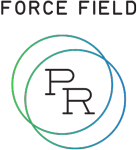
For Ohio-based Tim Story, American neo-classical composer and expert in synth-assisted exploration, this collaborative project is a lifelong dream. His partner in the sublime is Hans-Joachim Roedelius, the man behind Brian Eno favorites Cluster and a musical maverick whom Story has longed to work with ever since he first heard the cerebral, eerie, proto-Aphex strains of Germany’s Cluster in the ’70s when all around him was hairy, lairy rock ‘n’ roll.
“Rock ‘n’ roll was king and I was getting restless,” explains Story. “Discovering this new German electronic music was a blast of fresh air to the handful of us who managed to find it. As a friend of mine put it, Cluster’s music was like “some heavenly music except the primary instrument appears to be a coffee percolator.” What I was, and still am drawn to, is that Roedelius has the most intuitive approach to music of anyone I’ve ever met. Whether he’s playing a translucent piano improv, or experimenting with the most jagged, dense electronics, there’s this undeniable humanity and uniqueness to his work.”
The two first met when Story, traveling Europe to plug his first solo albums in 1983 and still obsessed by his hero, made a point to swing through Austria to meet him. Story ended up staying with Roedelius for a week, camping in the beautiful, forested area that would eventually give them their collaborative name. Since that first meeting, the two have remained close, exploring a kindred spirit for composing ’emotionally ambiguous’ soundscapes and for wine, something that delayed them actually working together until 1996: “Whenever we got together,” says Story, “we were always having too much fun to actually start!”
They finally got to it when Roedeluis and Cluster made their American touring debut in 1996. First to come from this musical partnership was the hallucinatory musique concrète of Persistence of Memory, followed by acclaimed 2003 album Lunz. It’s Inlandish, though, that sees the two, separated by 23-years and something called the Atlantic Ocean, putting their individual parts of the jigsaw together for what’s easily their most beguiling trip.
Describing the dream-inducing wash of sounds that is Inlandish, it is, at first listen, perhaps easy to call it ambient. Roedelius suggests that we should try a bit harder though: “Ambient doesn’t really express Inlandish‘s complexity and beauty. Inlandish is not easy to put in the category of what ambient music normally appears as in the listeners ears. Perhaps it’s ‘ambient at its best’, but I would think it’s a sort of new or contemporary classical music.”
They began the album by spending 10 days together in Story’s Toledo studio laying down Roedelius’s piano parts (“I’m just the piano-keyboard man,” says Roedelius somewhat disingenuously). After that, Story spent five months working on the tone of the record, adding the haunting twists and languid yet euphoric whooshes. Of the two, Roedelius is usually considered the groundbreaking electronicist but on Indlandish it was Story who added the electronic parts and all the arrangements (oboe, cello…). The result is an amalgam of pulsing, tinkling, voice-of-the-future sounds that touch on the dreamy and beautiful but also something darker, more melancholy and deeply existential. Says Story: “Happy music always seems kind of dull and shallow to me, so I’m always drawn back to something with a bit more mystery, darkness or sadness. I’ll take Bartok over Shostakovich, Boards Of Canada over Franz Ferdinand.”
This also being the reason for Story “electronically subverting acoustic instruments like the cello,” or making electronic sounds feel organic, challenging the listener to ask what’s what and how it makes them feel. It’s something that Story takes from his love of Steve Reich and the great man’s use of repetition and shifting perspectives. But however much Inlandish might sound like the soundtrack to a trip through the cosmos, this album is immersive rather than passive, both unsettling and comforting. For Roedelius, though, Inlandish is simply a beautiful album that expresses how much fun the two have had together: “We took breaks to eat nice food and to drink wine. We were also cooking together. I cooked my special French fish soup, which I learned running an art bar with friends at a beach in Corsica in the ’60s. Everything really was as easy and beautiful as Inlandish sounds.”
What the UK Press had to say about Inlandish:
“Album Of The Week”
THE TIMES*****
“2003’s Lunz was elegant, atmospheric set, but this latest collaboration is even more convincing… sounds like a cross between Bill Evans and Philip Glass or Debussy”
MOJO****
“This timeless 3rd collaboration exceeds even their fine ‘Lunz‘ album from 03… for fans of Boards Of Canada”
ROCKSOUND 8/10
“This is a record to set alongside 1977’s Cluster & Eno, but also Air and Aphex Twin: beautifully eerie, a world unto itself”
THE GUARDIAN****

Hans-Joachim Roedelius & Tim Story – Inlandish
Street Date – July 29th, 2008
1. As It Were
2. Inlandish
3. Trouve
4. Downriver
5. Ripple and Fade
6. Rooftree
7. Serpentining
8. House of Glances
9. The Orchardist
10. Riddled
11.Beforst
12. Intermittent Haiku
ROEDELIUS / STORY LINKS:
Press Materials: www.groenland.com/2006/artists_roedeliusInlandish.asp
Artist Site: www.lunz-music.com
